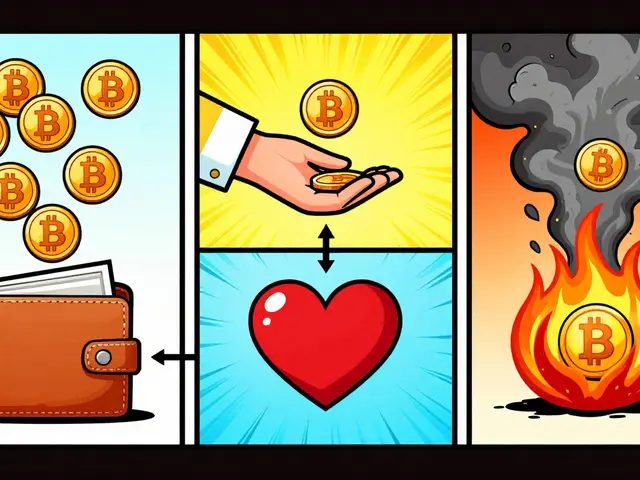Société Générale and the Evolving Crypto Landscape
When you hear Société Générale, a France‑based multinational bank offering retail, corporate and investment services, SocGen mentioned alongside cryptocurrency, digital assets secured by cryptographic techniques and blockchain technology, a distributed ledger that records transactions across many nodes, you’re looking at a convergence of finance and tech that’s reshaping markets.
Banking giants like Société Générale aren’t just watching from the sidelines; they’re actively testing pilots, joining consortia, and filing patents that embed blockchain into settlement workflows. Société Générale has announced proof‑of‑concept projects that aim to cut cross‑border payment times from days to minutes, using the same immutable ledger that powers Bitcoin. At the same time, European Union regulation, especially the MiCA framework, sets the legal backdrop that forces banks to adopt compliance‑by‑design models. In practice, this means every crypto‑related product the bank offers must be vetted for AML compliance, consumer protection, and market stability before it hits the market.
Why This Matters for Investors
Understanding the link between a traditional bank and emerging crypto assets helps you gauge risk and opportunity. If Société Générale decides to launch a tokenized deposit product, it could attract a new class of clients who want the security of a regulated institution plus the flexibility of digital assets. Conversely, heavy regulatory pressure from the EU could slow down the rollout of such services, causing market participants to look elsewhere. DeFi platforms—decentralized finance services that operate without intermediaries—are another piece of the puzzle. They challenge banks to rethink liquidity provision, lending, and yield generation. When a bank adopts DeFi protocols, it essentially bridges the gap between old‑school finance and the open‑source world, creating hybrid solutions that could become industry standards.
From a practical standpoint, the interaction between Société Générale and crypto markets creates several observable trends. First, you’ll see more white‑paper releases and partnership announcements that outline how the bank plans to use blockchain for trade‑finance and supply‑chain tracking. Second, regulatory filings will increase as the bank seeks approvals for new digital products. Third, investor sentiment shifts—stock analysts start rating the bank’s crypto exposure as a growth driver or a risk factor, depending on how well the bank navigates the regulatory terrain. All these signals feed into the broader narrative of how legacy financial institutions adapt to a decentralized future.
Our collection of articles below dives deep into each of these angles. You’ll find guides on how airdrops work, reviews of emerging crypto exchanges, and analyses of global regulatory trends that affect banks like Société Générale. Whether you’re a casual investor curious about the bank’s crypto experiments, a compliance officer tracking EU policy updates, or a developer looking at blockchain use cases in banking, the posts provide concrete examples, step‑by‑step explanations, and actionable takeaways.
In short, the relationship between Société Générale, cryptocurrency, blockchain, and European Union regulation isn’t static—it evolves with every new pilot, legal amendment, and market development. The articles that follow capture that evolution, giving you a roadmap to stay ahead of the curve.







